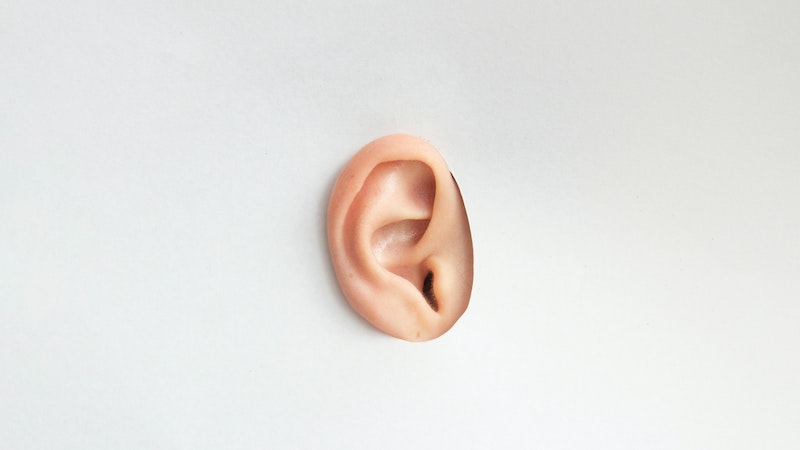Linguistics, Part Two: The Sound of Speech
Episode #2 of the course How to write a great speech: Linguistics, drama, and rhetoric by K.C. Finn
When you’re creating a speech, it’s important to remember that it’s not just about what you say, but how you say it, because you’ll have listeners to think of. If they don’t have a written copy of your speech to take away, then you need to make sure your message sticks in their mind.
In Lesson Two, we’ll look at the sound element of language, and some linguistic techniques that you can use to make special words and phrases stand out in the minds of your audience.
Consonance, Assonance, and Sentences That Stick
If you’ve ever studied writing or literature at school, you may remember a term called ‘alliteration’, which is a technique that describes repeated sounds in words. It’s a popular device in rhymes and tongue twisters, and it comes in several forms. Consonance is the repetition of consonant sounds (for example the s and sh sounds in: ‘She sells sea shells by the sea shore’) whilst assonance takes repeated vowel sounds instead (for example the long i sounds in: ‘The light of the fire is a sight’).
A lot of popular advertising catchphrases utilize these techniques in small ways to make their brands stand out (Best Buy, Coca-Cola, PayPal), and you can do the same for key points in your speech. Whether it is an educational term that you want your students to remember (‘a kicking k and a curly c’), a clever punchline to a joke in a personal speech (‘that really got his goat’) or a mantra that you want people to remember (‘Make America Great Again’), thinking about the repeated sound of letters can help you make your words stand out.
Exercise: Highlight your key points, punchlines, or persuasive ideas, and see if you can pair them up with words with the same vowel or consonant sound to help them stand out.
Repetition, Repetition, Repetition
When the repeated sound of certain words just isn’t enough to get your point across, you can be sure that specific ideas stick in the minds of your audience by employing repetition of a single word or a small phrase. Consider Dr. Martin Luther King’s iconic ‘I Have A Dream’ speech, which centers on the theme of imagining a better world for the future. You can make the repetition as subtle or obvious as you like, depending on your purpose, just be aware that the more obvious your repetition is, the more active (and possibly aggressive) your speech will sound.
Exercise: When considering your speech’s overall purpose, there may be special words, phrases, or ideas that you want your audience to remember. Write these keywords down now, and try to include them at regular intervals in your speech, but well-spaced to avoid obvious repetition.
The Power of Three
As human beings, our brains are hardwired to enjoy and remember patterns. This is the primary reason why the power of three works so well in speeches, in everything from humorous personal anecdotes to lists of our academic achievements. The technique refers to three related ideas which build on one another, with the final idea emphasized as the most important of all. When using this technique, it is important to think about which of the three ideas has the most impact when it is placed at the end of your sentence.
In speechwriting, you can use the power of three to undercut a speech with humour:
• “People love me because I’m gorgeous, intelligent, and most importantly, modest.”
Or to hammer home an important political statement:
• “This is supposed to be a government of the people, by the people, for the people.”
Or even to emphasize your achievements for a particular job/course interview:
• “My experience there taught me the importance of supporting others, being part of a community, and working as a team.”
Exercise: Do you have related ideas in your notes that can be grouped into a power of three? If not, are there smaller ideas you could use to build up a power of three, saving the best one for last?
In Lesson Three, we take on the final part of the linguistic approach to speechcraft where we can use language to allow readers to make connections and form ideas in their own minds, thus helping them to interact with our speeches more.
For now, work on some catchy phrases and memorable sounds to get your point across.
K.C.
Recommended reading
This article takes an even deeper look at language usage and how it can help your audience remember your words of wisdom.
Share with friends

